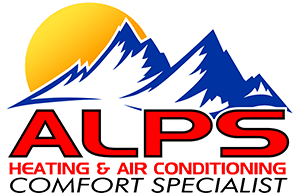Understanding the Lifespan of Different Heating Systems
When you become a homeowner, you take on a considerable amount of financial responsibility. Unlike renting, you are now solely responsible for maintaining and repairing your home. In this regard, it’s crucial to have a good understanding of the various systems that keep your household running smoothly. One such system to consider is your heating system. It’s important to learn about the different types of heating systems available, their expected lifespans and benefits so you can choose the one that best suits your needs.
Important Considerations
Frequency of Use
Living in a city like Anaheim, CA, allows you to experience a range of temperatures. Since Anaheim winters are pretty mild with an average high of 68F and an average low of 46F, the need for constant heat won’t be as intense as those who are experiencing winter in Detroit, Michigan. Since you’re living in a climate that doesn’t have extremely cold winters, your heating system will typically have a longer lifespan.
Installation Process
If you’re considering a heat pump as your heating system, you must find a highly qualified professional to handle the installation. Don’t leave such an important task to chance. By carefully researching and choosing a reputable company, like Alps Heating & Air Conditioning, Inc., you can ensure that the installation process is done right the first time. To take it a step further, Alps Heating & Air Conditioning, Inc. also offers maintenance and repair services to keep your system running smoothly for years to come. A well-done installation can make all the difference in the long run. Choose Alps Heating & Air Conditioning, Inc. for reliable and comprehensive installation services.
Systems to Consider
Heat Pumps
Heat pumps are an excellent solution as they can both heat and cool a home, making them versatile systems that offer year-round comfort. Heat pumps have a lifespan that ranges from 10 to 15 years. Regular maintenance helps to ensure they operate at optimal performance throughout their lifespan. One of the essential maintenance tasks for heat pumps is checking refrigerant levels. When refrigerant levels are low, the heat pump has to work harder, leading to increased energy bills and reduced efficiency.
Heat pumps also contain coils that require cleaning. Dirty coils can cause the heat pump to work harder, leading to increased wear and tear on the system. Additionally, heat pump units installed outside are exposed to the elements, making them susceptible to damage from debris and weather conditions. This is why routine inspections are important parts of the maintenance process. Inspecting the unit regularly can help detect any issues early and prevent costly repairs down the line.
Radiant Heating Systems
Radiant heating systems are not only efficient in heating a home, but they also provide a luxurious experience. The ability to heat floors, walls and ceilings is a unique feature that adds to the overall comfort of a home. This is one of the main reasons why the popularity of radiant heating systems continues to skyrocket. Another major benefit of radiant heating systems is their longevity. These systems are built to last and can operate for 25 years or more with good care.
Furthermore, radiant heating systems require less maintenance than other heating systems due to their sleek, simple design and lack of moving parts. Yet, it is still essential to conduct regular maintenance checks to ensure the system’s efficiency. This includes checking for leaks and scheduling an annual professional check-up. By staying on top of maintenance, you can ensure that your radiant heating system will continue to provide comfort and warmth for decades to come.
Forced-Air Heating Systems (Furnaces)
Forced-air heating systems are a popular choice for many homeowners, as they are typically powered by gas or electricity, making them easy to use and maintain. These systems consist of a furnace, which heats the air, and a network of ducts. It also distributes the heated air throughout the home. One thing to keep in mind is that the average lifespan of a forced-air heating system is around 15–20 years.
However, regular maintenance can help extend the system’s life. This includes changing air filters regularly to ensure proper airflow and inspecting the ductwork for any leaks or damage. By taking care of your forced-air heating system, you can ensure that it will continue to provide reliable and efficient heating for years to come. If you’re unsure about how to properly maintain your system, it’s always a good idea to consult with a professional HVAC technician for guidance.
Moving Forward With Professional Assistance
No matter the type of heating system you choose, always include professional assistance in your heating maintenance and installation plans. Our team at Alps Heating & Air Conditioning, Inc. can handle all the moving parts of various heating processes. Additionally, we offer services that include insulation, air quality optimization and more. To learn more on how we can serve you well, contact us today!

